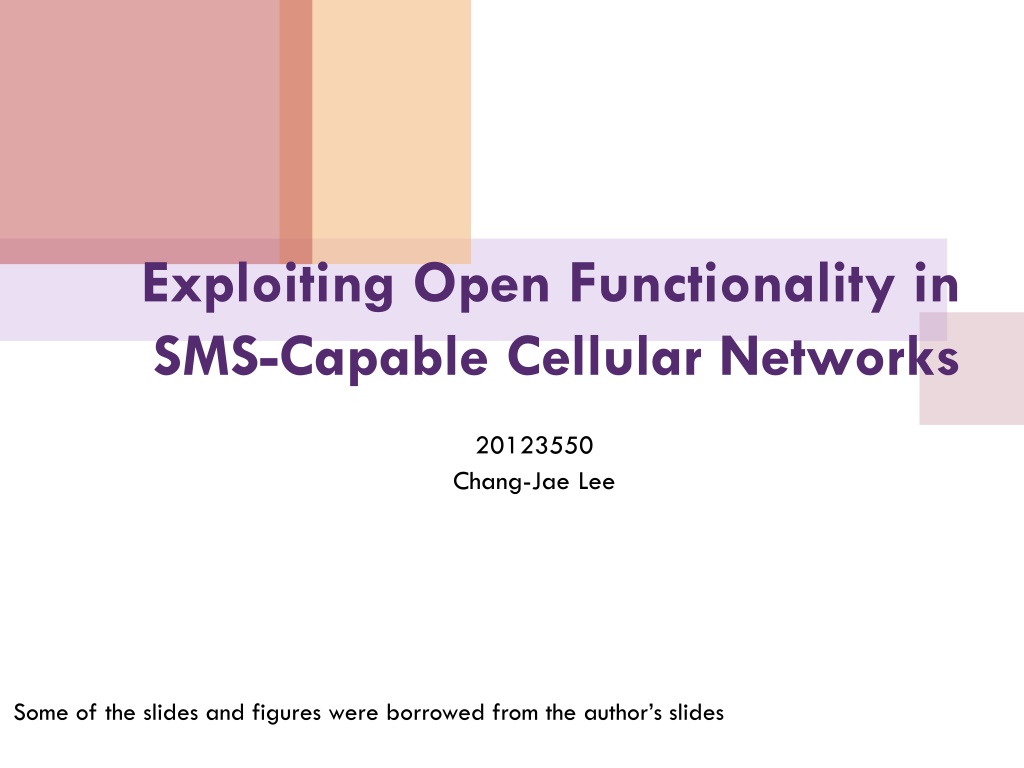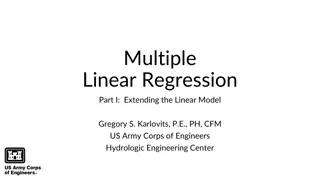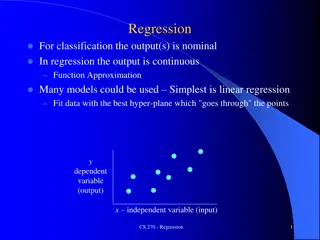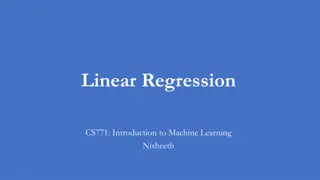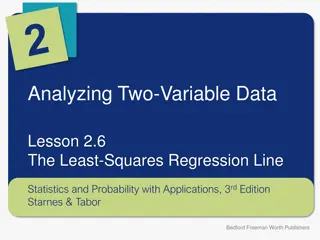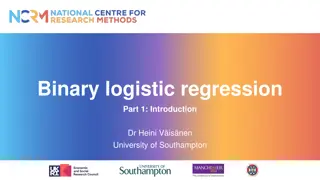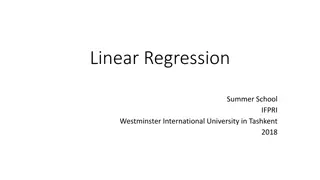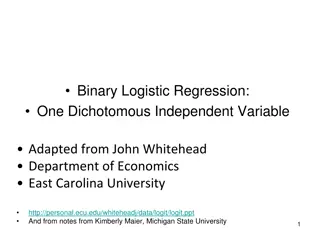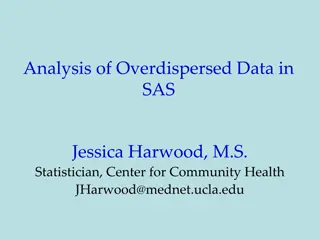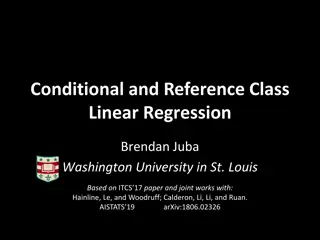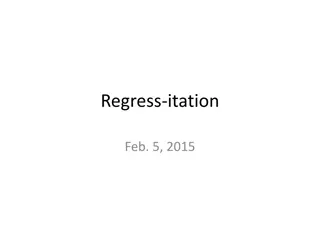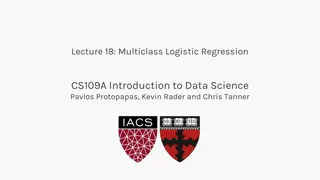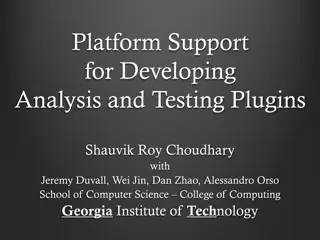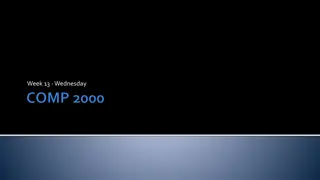Regression Testing Fundamentals
Regression testing seeks to uncover new software bugs in existing functional and non-functional areas after changes. Learn about when to perform regression testing, methodology, criteria for selecting test cases, and classifying test cases based on priority.
Download Presentation

Please find below an Image/Link to download the presentation.
The content on the website is provided AS IS for your information and personal use only. It may not be sold, licensed, or shared on other websites without obtaining consent from the author.If you encounter any issues during the download, it is possible that the publisher has removed the file from their server.
You are allowed to download the files provided on this website for personal or commercial use, subject to the condition that they are used lawfully. All files are the property of their respective owners.
The content on the website is provided AS IS for your information and personal use only. It may not be sold, licensed, or shared on other websites without obtaining consent from the author.
E N D
Presentation Transcript
Exploiting Open Functionality in SMS-Capable Cellular Networks 20123550 Chang-Jae Lee Some of the slides and figures were borrowed from the author s slides
Intro SMS(Short Message Service): a short text message transmission(asynchronous) Can be delivered via internet Extremely popular 69 million in a day (UK)
More Terminologies Cellular Network Radio Network or infrastructure Base Station Cellular towers Channel A frequency cellphone comm. are Tx-ed Sector A cell region covered by fixed channels
The Air Interface Traffic Channel(TCh) For voice traffic Control Channel(CCh) For signaling btw BS and phones and for SMS messages CCh was not designed for SMS
The Air Interface(contd) (Figures)Stand-alone Dedicated CCh
The Air Interface(contd) Time Division MUXing of GSM 8 time slot/Ch PCh, SDCCh: embedded in CCh (2 * # of channels) of SDCCh
The Air Interface(contd) Once SDC Channel is full with SMS, call setup is blocked An adversary s goal: fill the cell network with SMS traffic
Vulnerability Analysis Profiling attributes by GSM Gray-box testing About implementation specific specs Example: How many SMS/hr per SDCCh? How are SMS messages stored?
Vulnerability Analysis(contd) Phone capacity Slowly inject messages to target phone Result 30~50 messages can be stored(old phones) ~500 messages exhaust battery(high-end ones)
Vulnerability Analysis(contd) Injection vs Delivery rate Result: large imbalance between two Many sites provides bulk SMS sending ~1000s msgs/sec can be sent
Vulnerability Analysis(contd) Interface regulation Check limitations on Providers web interfaces IP-based(AT&T, Verizon), session cookies(Sprint) Spam filtering drops cannot be found 30~35 msgs/sec can be sent usually
Gray-box Test Summary Some msgs injected would be lost Msgs can be injected 100s times faster than can be delivered Interfaces have some anti-triggers against mass injection Conclusion: an attacked should be distributed & multi-targeted
Hit-List Need a Hit-List for multi-targeted How to get a Hit-List 1) Web scraping 2) Worms Get recent call list, etc 3) Search Internet for NPA/NXX DB
Hit-List(contd) Web scraping Google like 999-999-0000 9999
Hit-List(contd) NPA/NXX DB search Prefix can be identified via target area
Hit-List(contd) SMS sending sites also gives info. Provider web interfaces checks if the destination number is valid
Area Capacity Capacity can be calculated: C = (sectors/area)*(SDCCHs/sector)*(throughput/SDCCH) Manhattan case is here:
Area Capacity(contd) 1 msg = 1500 bytes(max length) 165 msgs/sec = 1933.6 kb/sec Cable modem: ~768 kb/sec Can be 193.36 kb/sec with multi-send interface
Attack Scenario Hit-List with 2500 numbers Average ~50 msgs for device buffer 8 dedicated channels 1 message in 10.4 sec (per phone) About 8.7 min to fill buffers
Attack Scenario(contd) Saturate queues Messages exceeding saturation levels are lost SMSC queue: ~500 msgs Device: 30 ~ 50 msgs
Attack Aftermath Messages are gone! Also messages are delayed Some devices lose even more data (when full, delete old read messages) Battery depletion expected
Solution for the Attack Separate queues for control & SMS Limit rates Next Generation Network
Conclusion Cellular network is a critical resource in social or economic structures External devices misuse can be fatal
